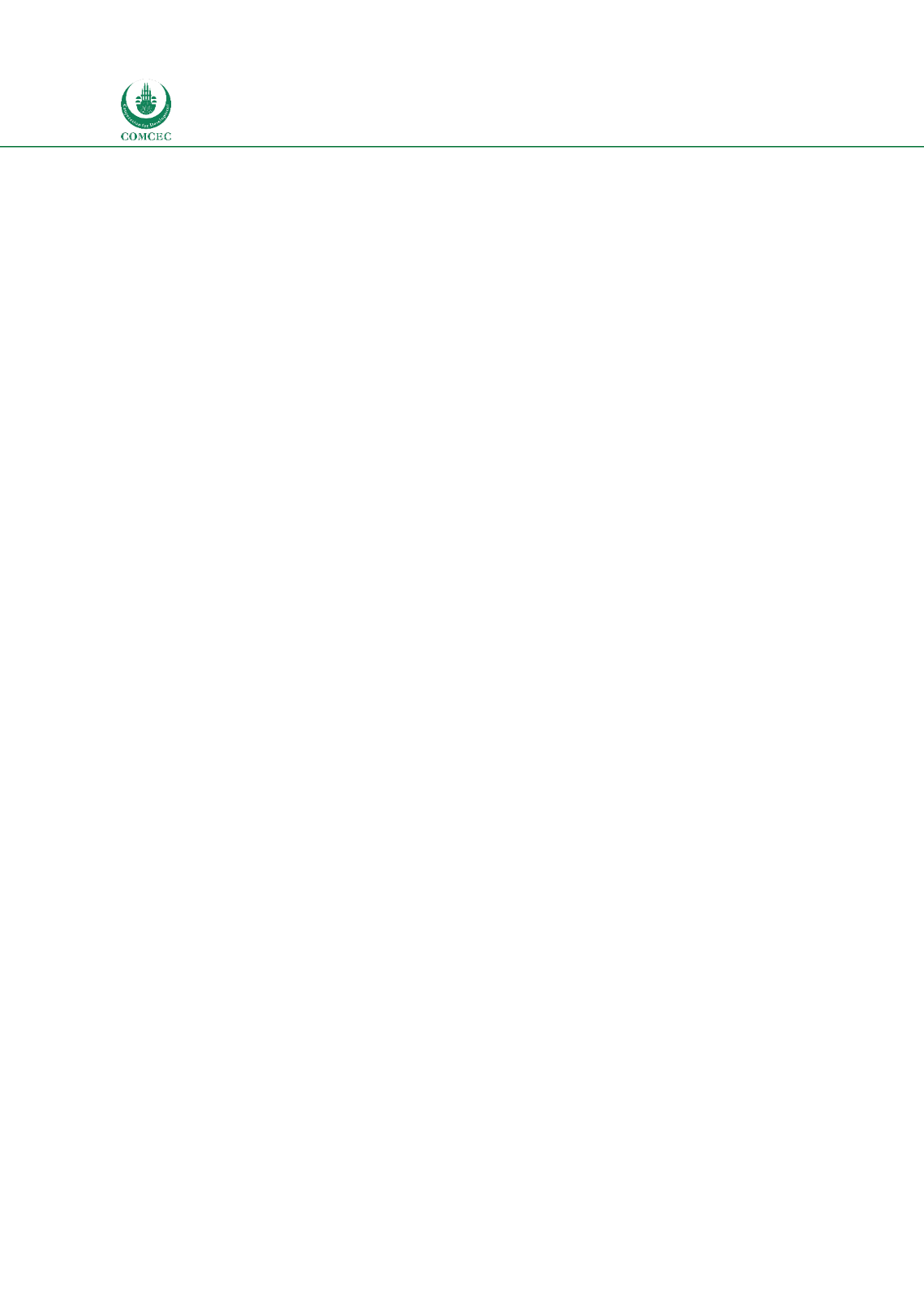

National and Global Islamic Financial Architecture:
Problems and Possible Solutions for the OIC Member Countries
108
51,950) are fully reimbursed. In addition, BDIS reimburses depositors on their net deposits per
bank. In other words, the scheme reimburses per bank per depositor and joint account holders
are treated separately according to their portion. PSIA holders of Islamic banks/windows are
not covered by the BDIS. The Central Bank of Oman currently is working on a Sharia compliant
insurance scheme for depositors of Islamic banking (CBO).
4.6.7. Human Capital & Knowledge Development Framework
Realizing that human capital is an essential building block for the development of societies and
economies, the Omani government gives high priority to its development
.
Hence, it gives
thousands of scholarships yearly for undergraduate and postgraduate studies based on the
needs of the Omani labor market. In addition, it has a Research Council for innovation and
development to satisfy the local needs and international trends.
As Islamic finance is new in Oman, having begun at the end of 2012, there is lack of adequate
personnel in the country to cater to the needs of the Islamic financial sector at different levels.
As a result, the government bodies support events that raise awareness of Islamic finance. For
example, the Central Bank of Oman (CBO) has organized two conferences in Islamic Banking
and Finance in 2012 and 2013. Furthermore, Islamic banks and windows in the country are
legally required to train their employees at all levels (higher management, senior and junior
staffs) and provide them with adequate information to deal with customers, and they are
required to submit the list of Islamic banking training programs offered to the management,
Shari’a resources and board of directors to the CBO annually (CBO, 2012).
There are different educational institutions in the country offering short-term and long-term
courses in banking and finance. The College of Banking and Financial Studies (CBFS),
supported by the government and operating under the supervision of the Central Bank of
Oman, has programs and courses to enhance the knowledge of and skills for the Islamic finance
sector. Other than offering undergraduate degrees in Islamic finance, it has short training
courses such as, Introduction to Islamic Banking, Islamic Banking Products, Financial
Statements for Islamic Banks and Islamic Finance for SMEs. In addition, it offers preparatory
training for Islamic Finance Qualification of CISI and preparatory training for CIMA Diploma in
Islamic Finance.
There are also initiatives by the private sector to enhance the knowledge and skills on Islamic
finance. For example, Meethaq Window (Bank Muscat) sponsored and hosted different events
regarding Islamic finance such as the International Seminar on Risk Management and
Compliance in Islamic Financial Institutions organized by the General Council for Islamic Banks
and Financial Institutions (CIBAFI) (Meethaq, 2016) and a seminar that highlighted the core
legal issues and risks in Islamic banking (Meethaq, 2014). In addition, Meethaq and Thomson
Reuters are set to launch ‘Meethaq Business Pulse’, an innovative information portal targeted
at promoting small and medium enterprise (SME) development in Oman (Meethaq, 2015).
Similarly, Bank Nizwa provides a series of interactive workshops, training sessions, and
conferences in strategic, leadership and Islamic banking disciplines to nurture the next
generation of Islamic banking leaders (BN, 2016). Whereas Bank Nizwa organized the 2nd
Islamic Banking Forum in Muscat (BN, 2014), Alizz Islamic Bank sponsored the 3rd Al Roya
Economic Forum (AIB, 2014).
















